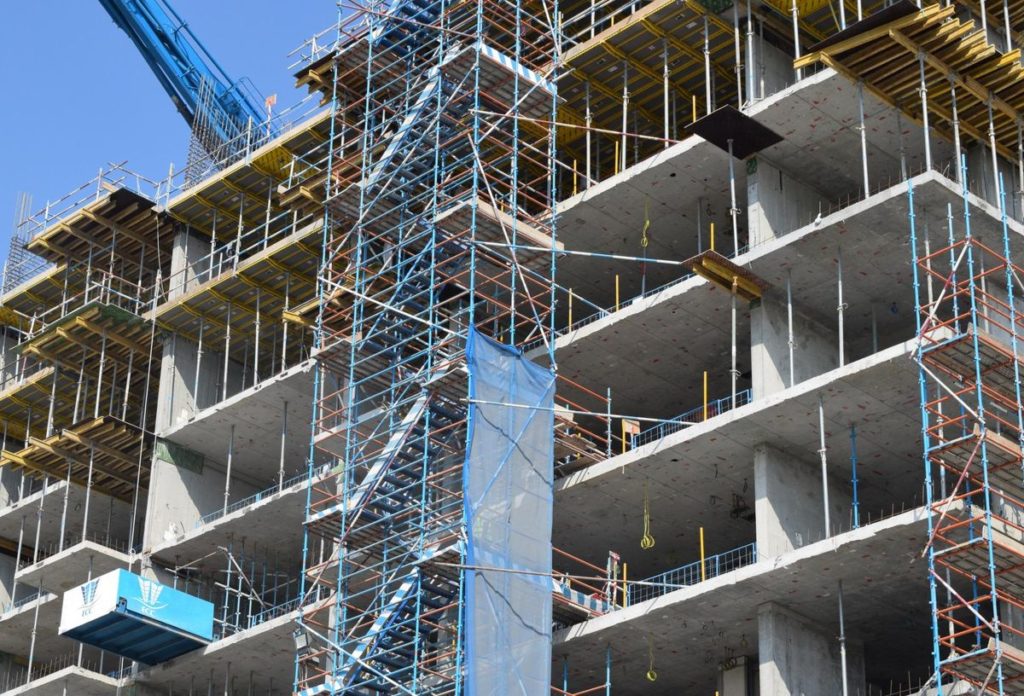
With the construction industry already bogged down due to pandemic-related schedule delays and labor shortages, contractors don’t want to be further slowed down by avoidable errors. In 2021, rework accounted for 30% of the work on a typical construction project. Much of that has been due to mistakes arising from avoidable gaps between plans and fieldwork.
SiteAware, a provider of real-time error prevention technology, seeks to “close the gap” and eliminate the risk of rework by providing data insights to construction teams in real time, when it makes the most difference.
“Rework creates a level of uncertainty that all parties on a project — from developers to general contractors and subcontractors — try to manage by compromising on cost, schedule and quality,” CEO Zeev Braude said. “We’re giving construction teams a support system that allows them to get observations and prevent errors on everything built on-site that deviates from the plans. This can be construction errors, things that may have been forgotten, clashes between the trades and any other discrepancies that are occurring between the plan and the field.”
Braude said that SiteAware reduces rework by verifying the consistency of fieldwork to plans on a digital twin. The twin is used to check all of the elements on the core, shell and interior of the building, while the AI within the platform verifies that the work happening in the field is aligned with the plans in real time. The information, complete with action items that need to be addressed, is then pushed to an interactive web portal for easy access by the superintendent or manager on-site.
Once the person in charge receives the actionable insights, Braude said, they can view any inconsistencies and relay the information to the workers before completing a major action, such as a concrete pour, a facade installation or boarding up drywall. Once everything is addressed and verified in the field, the managers can update the data and move on with the project, having prevented these errors.
“All of this is happening in real time in a way that doesn’t interrupt daily fieldwork and gives construction teams data that they can use while all of the teams are on-site working,” Braude said.
Doron Klein, an architect and vice president of marketing at SiteAware, said that in addition to preventing errors, the platform helps create productive discussions and positive relationships among the trades. With the data provided, managers can dig deeper into how people are coordinating with one another and get a clear picture of what happens on-site to avoid miscommunication and strained relationships.
“Much of construction is about contracts and relationships between different parties, and when you don’t have data to back up the decisions being made, a lot of the work depends on people’s ability to get each other to do what needs to be done,” Klein said. “Having this data takes the finger-pointing and blame out of interactions and allows people to handle day-to-day interactions in a straightforward, fact-based manner.”
Braude added that having the technology to verify the work allows companies to leverage their workforce and guide new hires with measurable standards for fieldwork. This is particularly important as the industry continues to experience rampant labor shortages.
“The platform helps to erect virtual guide rails so that less-experienced people can ultimately complete the job the way it was intended,” Braude said. “This is because the platform is catching when they deviate in time to get them back on track.”
While SiteAware has been on the market for less than three years, Braude said, the company is currently working with more than 30 of the top general contractors and developers in the industry. While some of SiteAware’s customers started using the tools as a way to verify data for one or two buildings, many have progressed to using it as a standard for the entirety of their field operations.
“General contractors and developers see the immediate benefit and acceleration in their schedule as well as confidence in handling unpredictability,” Braude said. “We’re giving them an answer to many of their challenges.”
In addition to the impact of digital construction verification on fieldwork, Braude said, it is also making an impact on strategic planning. DCV analyzes the element-level data gathered in order “to reveal patterns that help managers uncover bottlenecks, prioritize fixes, and make better decisions about everything from the subcontractors they choose to where they can improve project coordination.”
Klein said that the company is currently working with general contractors and developers who see this as a “must-have” for their new development projects. Braude added that the company just closed $15M in Series B funding to be allocated toward growing the team and increasing the platform’s usage within the U.S.
“Real estate’s investment in technology is pretty small as compared to other industries, and I believe that once the industry leverages technology in construction, as other industries have, it will lead to productivity gains rivaling those seen in the other industries,” Braude said.
This article was produced in collaboration between Studio B and SiteAware. Bisnow news staff was not involved in the production of this content.
Studio B is Bisnow’s in-house content and design studio. To learn more about how Studio B can help your team, reach out to studio@bisnow.com.
